Okra Capsules: A Natural Supplement for Modern Lifestyles
 2025-08-05 11:04:34
2025-08-05 11:04:34
What is Okra?
Okra Root Powder (US: /ˈoʊkrə/, UK: /ˈɒkrə/), Abelmoschus esculentus, known in some English-speaking countries as lady's fingers, is a flowering plant in the mallow family native to East Africa. Cultivated in tropical, subtropical, and warm temperate regions around the world for its edible green seed pods, okra is used in the cuisines of many countries.
Okra is renowned for its nutritional value. An excellent source of dietary fiber, okra also contains high concentrations of vitamins A, B, C, and K. It's also a significant source of calcium, potassium, iron, zinc, and is high in folate.
If that's not enough to satisfy you, okra also boasts powerful antioxidant properties. Low in calories yet packed with vitamins, nutrients, and minerals, okra definitely holds its place among the most nutritious foods.
Okra capsules, made primarily from okra and supplemented with other botanicals such as wolfberry, ginkgo biloba, alpinia oxyphylla, lily bulb, and poria cocos, have enjoyed a positive reputation since their launch. Made with okra as the primary ingredient, okra capsules can enhance endurance, fight fatigue, strengthen the kidneys, and effectively treat kidney deficiency in men. In addition, okra capsules can enhance the body's immunity and prevent the occurrence of some diseases.
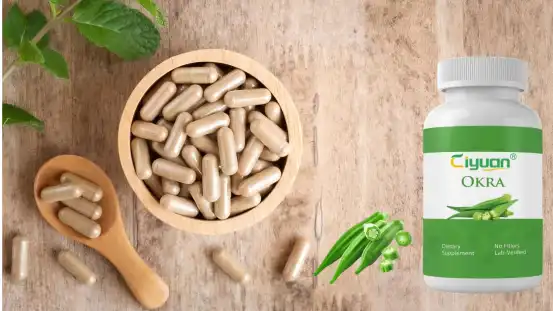
The Benefits of Okra Root Powder
Okra's benefits and functions include lowering blood sugar, promoting digestion, providing antioxidants, boosting immunity, and protecting cardiovascular health. A detailed analysis is as follows:
---Lowering Blood Sugar:
Okra is rich in soluble fiber and various bioactive ingredients, effectively lowering blood sugar levels. The polysaccharides in okra can slow sugar absorption, helping diabetics manage blood sugar fluctuations. The antioxidants in okra also help improve insulin sensitivity, further lowering blood sugar.
---Promoting Digestion:
Okra is rich in dietary fiber, which promotes intestinal motility and improves digestion. Fiber not only increases stool bulk and promotes bowel movements, but also nourishes beneficial bacteria in the intestines, maintaining a balanced intestinal microbiome and preventing digestive issues such as constipation and diarrhea.
---Providing Antioxidant:
Okra is rich in various antioxidants, such as vitamin E and carotene, which effectively scavenge free radicals in the body and slow the aging process. Antioxidants not only help protect cells from oxidative damage, but also reduce the risk of chronic diseases and maintain overall health.
---Boosting Immunity:
Okra is rich in vitamin C and other antioxidants, which can enhance the body's immune function. Vitamin C helps promote the production of white blood cells, improves the body's resistance, and reduces the risk of infection. The various minerals in okra are also essential for the normal functioning of the immune system.
---Protecting Cardiovascular Health:
The fiber and phytosterols in okra help lower blood cholesterol levels and prevent arteriosclerosis. Regular okra consumption can improve blood lipid levels and reduce the risk of cardiovascular disease. The potassium in okra helps regulate blood pressure, further protecting heart health.
As a nutritious vegetable with multiple health benefits, okra is suitable for all people, especially those with diabetes and those seeking improved digestive function. Its rich nutritional content not only meets daily dietary needs but also provides strong support for overall health. Moderate okra consumption can help maintain overall health and improve quality of life.
Okra capsules are a health supplement primarily made from okra, offering a variety of benefits and effects. First, they are rich in dietary fiber, which helps improve digestive function, promote intestinal motility, and prevent constipation. Second, the mucus in okra capsules protects the gastric mucosa, reduces acid irritation on the stomach wall, and has a certain auxiliary therapeutic effect on gastritis and gastric ulcers. Furthermore, okra capsules exhibit various biological activities, including antioxidant, anti-inflammatory, and hypoglycemic and lipid-lowering properties, helping to maintain cardiovascular health and prevent chronic diseases such as diabetes. Finally, the nutrients in okra capsules can enhance immunity and improve the body's disease resistance. In short, okra capsules are a health supplement with multiple health benefits suitable for all demographics.

The Notes of Okra Root Powder
Contraindications for eating okra include: those prone to allergies, excessive consumption, eating on an empty stomach, eating uncooked, and not suitable for gout sufferers, spleen deficiency sufferers, kidney stones, or those with a cold constitution. If you experience any discomfort while eating this food, seek medical attention immediately.
---Avoidance for Allergic Reactions:
If you are prone to allergies and are allergic to okra, you should generally avoid eating it to prevent allergic symptoms such as skin redness, swelling, and ulcers.
---Excessive Consumption:
Even when eating it, it's important to control your intake and avoid excessive consumption to avoid overloading your gastrointestinal tract and causing gastrointestinal discomfort.
---Eating on an Empty Stomach:
Okra is high in fiber, and eating it on an empty stomach may cause gastrointestinal discomfort such as bloating and diarrhea.
---Eating Uncooked:
Okra is usually eaten after being cooked. This is because raw okra contains oxalic acid, which can easily irritate the abdomen. Cooked okra has a better texture and is easier to digest.
---Gout Patients' Prohibitions:
Because okra is high in purine, gout patients should avoid eating it to avoid elevated uric acid levels, which can trigger gout attacks.
---Spleen Deficiency Prohibitions:
Okra is a cooling food. Eating it can increase the body's coldness and lead to diarrhea.
---Kidney Stone Patients' Prohibitions:
Okra contains a high level of oxalic acid. Eating it can worsen kidney stone problems, so patients with kidney stones should avoid it.
---Cold Constitution Prohibitions:
Okra is a cooling vegetable that significantly affects the body's yin and yang balance. People with cold constitutions should not eat okra. Doing so can cause excessive coldness in the body, leading to various illnesses.
Maintain a light diet to minimize adverse symptoms.
The Development of Okra
Currently, demand for nutraceuticals is rapidly growing, primarily due to their therapeutic value in treating a variety of conditions, including diabetes, hypertension, arthritis, inflammatory bowel disease, the common cold, dyslipidemia, and heart disease. Nutraceuticals can also extend lifespan by slowing aging, promoting overall health, and maintaining normal function. Due to the diverse pharmacological potential of okra-derived molecules, okra has been considered a potential source of nutraceuticals.
Okra, an edible vegetable, could be an ideal source of nutraceuticals because it contains both nutritionally active chemicals and various physiological benefits. Because okra is readily available and inexpensive, it has the potential to become an important nutraceutical product for people in all countries, regardless of their stage of development. In particular, okra-based nutraceuticals could be an ideal source of nutrition for malnourished populations in underdeveloped countries.
Nutraceuticals have demonstrated health benefits, and their consumption may help prevent disease and maintain overall health. Therefore, due to the diverse therapeutic uses of okra's various parts (fruit, seeds, pulp, and mucilage), it could be considered an important nutraceutical vegetable crop.
Okra is an affordable, natural source of carbohydrates, protein, fatty acids, vitamins, fiber, and minerals, as well as a variety of other bioactive phytochemicals important for human health. Due to its nutritional profile, okra can potentially be used to address malnutrition in underdeveloped countries worldwide. Furthermore, due to okra's easy availability and low price, its formulation as a nutraceutical would also prove beneficial. Therefore, further research should focus on developing functional foods, nutraceuticals, or pharmaceuticals utilizing okra's ingredients. The future prospects and market for okra and okra capsules
as a health supplement are very positive, and we look forward to its future developments!
References:
1. The Plant List: A Working List of All Plant Species". Retrieved 3 October 2014. "Okra". BBC Good Food. Retrieved 12 April 2023.
2. Ayto J, ed. (2002). "lady's fingers". An A-Z of Food and Drink. Oxford University Press. ISBN 9780192803511. Retrieved 12 April 2023.
3. Jump up to:a b c d "Okra, or 'Gumbo,' from Africa". Texas AgriLife Extension Service, Texas A&M University. Archived from the original on 4 March 2005.
4. National Research Council (27 October 2006). "Okra". Lost Crops of Africa: Volume II: Vegetables. Vol. 2. National Academies Press. ISBN 978-0-309-10333-6. Retrieved 15 July 2008.
5. Ashraf S.A., Adnan M., Patel M., Siddiqui A.J., Sachidanandan M., Snoussi M., Hadi S.S. Fish-Based Bioactives as Potent Nutraceuticals: Exploring the Therapeutic Perspective of Sustainable Food from the Sea. Mar. Drugs. 2020;18:265.
6. Ahmad F., Ashraf S.A., Ahmad F.A., Ansari J.A., Siddiquee R.A. Nutraceutical Market and its Regulation. Am. J. Food Technol. 2011;6:342–347.
7. Ashraf S.A., ElKhalifa A.E.O., Siddiqui A.J., Patel M., AwadElkareem A.M., Snoussi M., Ashraf M.S., Adnan M., Hadi S.S. Cordycepin for Health and Wellbeing: A Potent Bioactive Metabolite of an Entomopathogenic Cordyceps Medicinal Fungus and Its Nutraceutical and Therapeutic Potential. Molecules. 2020;25:2735.
8. Roy A., Shrivastava S.L., Mandal S.M. Functional properties of Okra Abelmoschus esculentus L. (Moench): Traditional claims and scientific evidences. Plant Sci. Today. 2014;1:121–130.
9. Dwyer J.T., Coates P.M., Smith M.J. Dietary Supplements: Regulatory Challenges and Research Resources. Nutrients. 2018;10:41.
10. Petropoulos S.A., Fernandes A., Barros L., Ferreira I.C.F.R. Chemical composition, nutritional value and antioxidant properties of Mediterranean okra genotypes in relation to harvest stage. Food Chem. 2018;242:466–474.


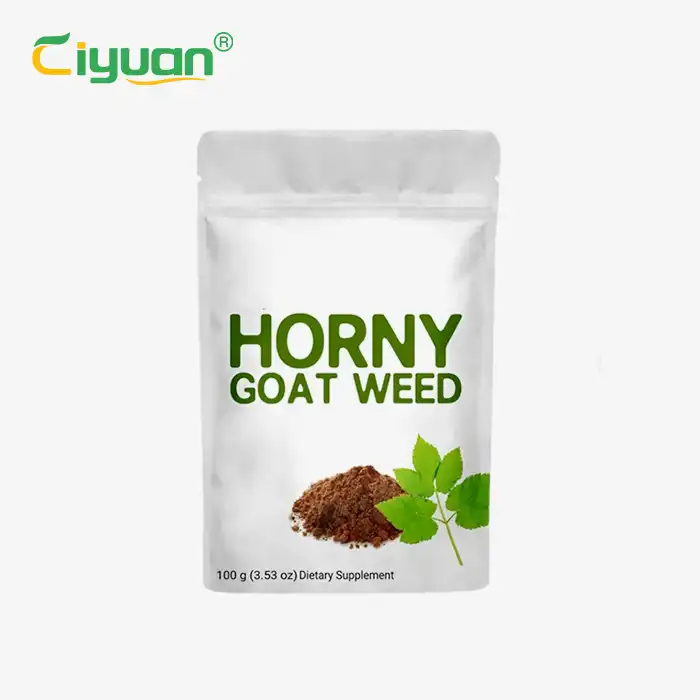
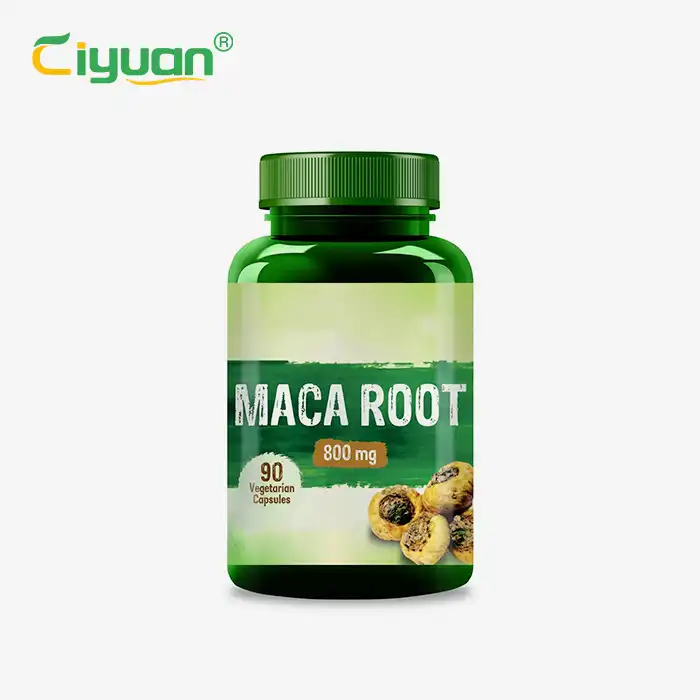
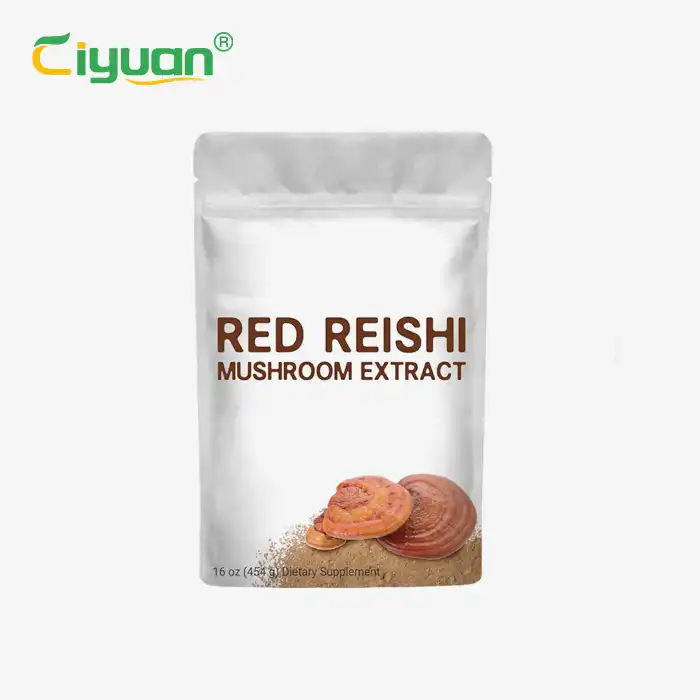





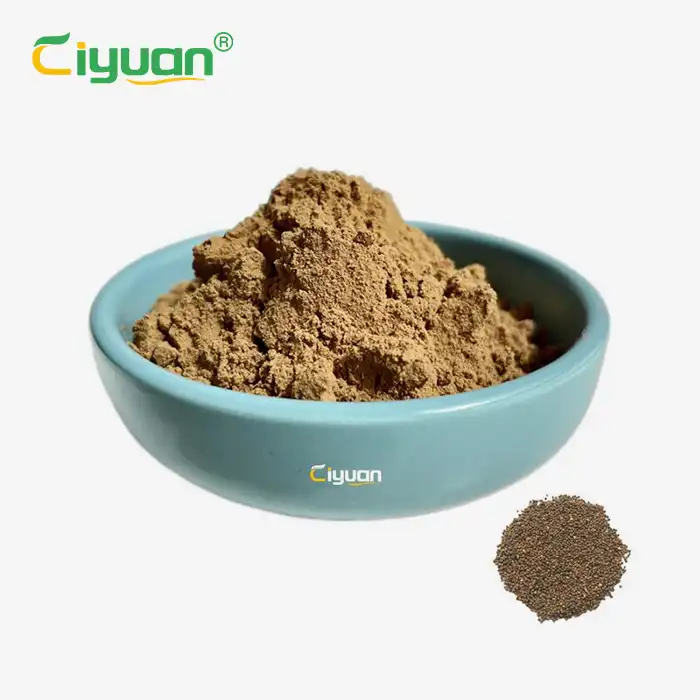
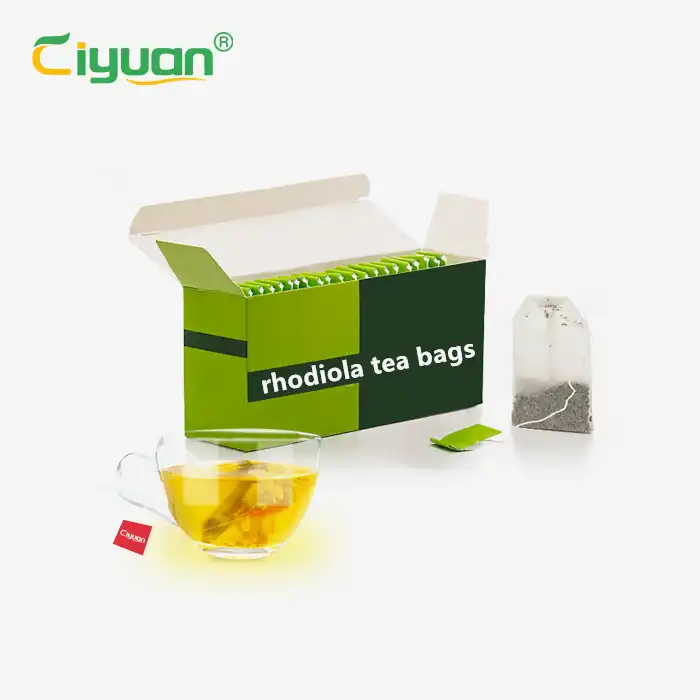
_1750235124685.webp)
_1753164869089.webp)
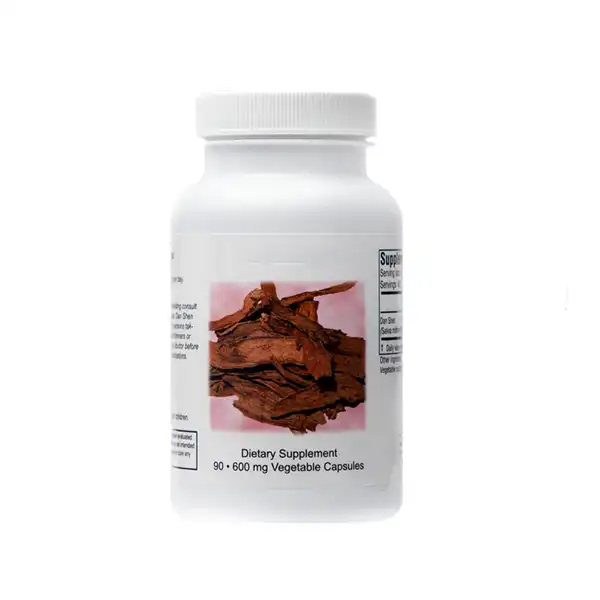
_1754554477435.webp)
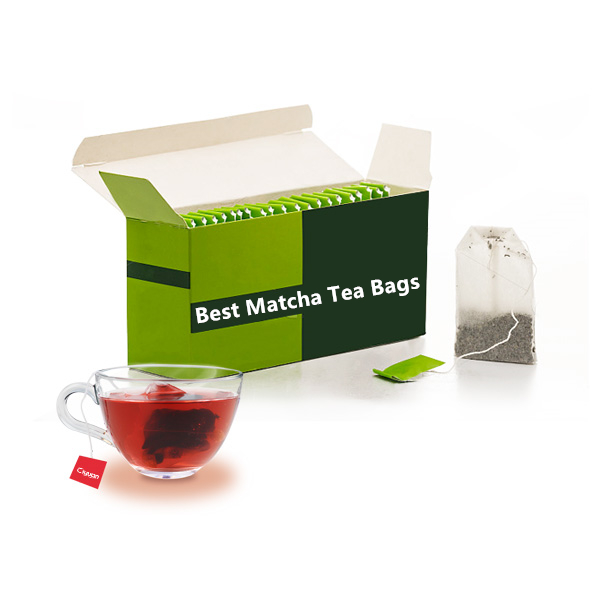
_1756265033621.webp)

